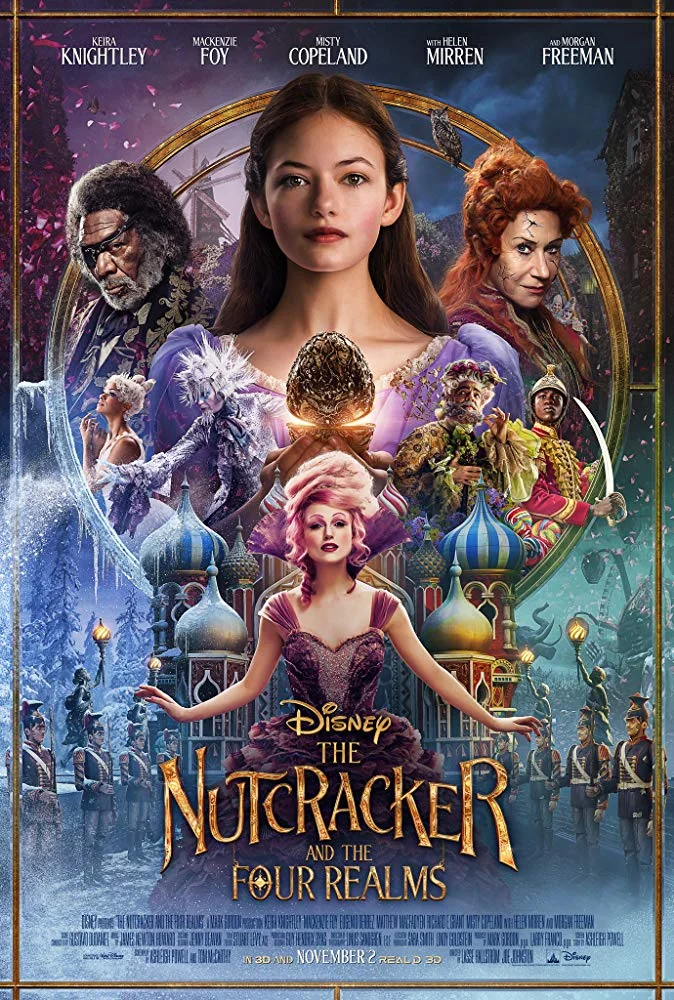Klaus (2019)
It’s rare for me to find a Christmas-themed movie that doesn’t make me want to turn it off 15 minutes in due to some disgustingly over-the-top theme about love and family and “the true meaning” and whatnot.
Fortunately, “Klaus” (2019) avoided all of those pitfalls and ended up fitting into the same pleasant category as “The Grinch” (1966): a story about finding your place in the world and learning to be happy with your life, coincidentally set against the backdrop of the Christmas season.
“Klaus” opened with Jesper (Jason Schwartzman) failing his way out of the Royal Postal Academy, a training slot he’d only gotten into thanks to his father’s high-powered string-pulling. Jesper, you see, was the ultimate malingerer - he wanted nothing more than to be pampered by the family servants and never having to lift a finger. His father, at the end of his rope, sent Jesper to Smeerensburg - a nasty little town at the ice-end of the world where two warring clans had been fighting each other since the beginning of time - with the condition that Jesper could return to the comforts of home after starting a new post office and getting 6000 letters stamped as the official Post Master of the region.
As to be expected from such a pampered man-child, Jesper kicked and screamed the entire way. Even when he finally arrived in Smeerensburg, he did his best to weasel out of his task and take whatever shortcuts possible.
Fortunately for the plot, and unfortunately for him, there were no shortcuts and Jesper actually had to hack it in the frozen wasteland of the north.
While looking for people who didn’t hate each other, Jesper wandered out of town and met Klaus the Woodworker (J.K. Simmons), who conveniently had a whole bunch of hand-made toys and a depressing backstory. Through a cute little plot device, Klaus gifted one of the toys from his workshop to a sad kid in town who was suffering from the blood-feud being waged around him.
One thing led to another and soon all the children were sending letters to Klaus, asking for toys. Jesper got his letter-stamping in, Klaus got to see children happy playing with the toys he made, and the town got happier. As the kids were given presents, they shared them with other kids, regardless of their family of origin. As the kids played nice, so too did the parents, until eventually the clan war simply faded away (over the course of a year).
There’s more to the story, but to avoid simply giving away every turn of the plot, I’ll leave it at this: everyone got a happily ever after, including Klaus, who ultimately got his magic sleigh and reindeer.
Speaking of which: the montage of present-deliveries showed the origin of all of the “Santa” lore.
For example: Klaus was a massive man, as a woodsman would be, so skinny Jesper was expected to bring the presents to the kids; locked doors and windows meant that Jesper used the chimney. So while the children knew that Klaus was making the presents, and they knew what he looked like, they also assumed he was delivering them, and thus the magic of Klaus’ ability to “get into” any home. Similarly, Jesper eating a cookie left on the table as an exhaustion-snack turned into “leave out cookies for Klaus.”
Because Jesper was the public face of the post office, he heard all of the rumors about Klaus, and would then share them with the woodsman for a laugh.
All of these deliveries happened over the course of Jesper’s year in Smeerensburg, with no relation to any holiday, until Jesper saw that he was a mere 1000 letters shy of going home, and thus plotted to use Christmas as a time to get all of the kids in town to write a flood of letters.
While in the north, Jesper also met a tribe of folks who wore brightly dyed red and blue cloaks, similar to what you’d find if you Googled “traditional Finnish garb,” so that was a nice nod to a regional group for a movie that very clearly didn’t take place on our Earth and was made by a Brazilian studio.
Throughout the movie, Klaus repeated the line “One act of true kindness begets another,” which was ultimately shown in the way the towns-people behaved and grew to treat each other better, which was a very solid theme for a kids movie based on a holiday that’s now rooted in some pretty heavy-handed consumerism.
This movie wasn’t a Pixar flick, but definitely had the heart for it. In fact, I’ve never heard of the studio that made this, but they did an outstanding job.
The art style was cartoony without being distracting, they very clearly had an artistic theme that they used throughout, and the voice-acting lined up with every characters’ lips. The plot was simple but not basic, and the character development was smooth and thorough.
The soundtrack was good too.
It was definitely a heartwarming tale that might possibly make your heart grow a size or two by the end credits.
It released last week on Netflix, ahead of a limited theatrical release.
If you happen to live near a theater where this is going to get screened, go see it, it’s definitely the kind of thing that the young, and young-at-heart, can all enjoy.



